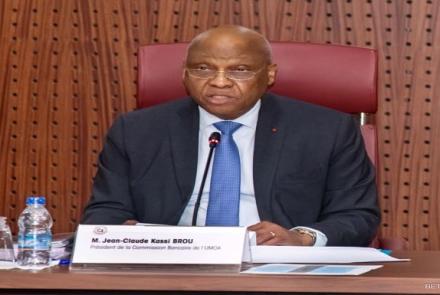The persons assisting in leading, running or managing regulated institutions must have the professional skills, integrity and personal qualities required to manage the activities of the institution and staff under their authority.
Credit institutions may not be directed, administered, or managed by any person who is not a national of a WAMU Member State, unless, by virtue of a special enterprise agreement, that person is assimilated to a national.
Citizenship is not required for persons from outside WAMU who, by virtue of a special enterprise agreement, are assimilated to nationals of the Union Member State where they intend to operate.
In the absence of such an agreement, they will be required to produce a waiver of the citizenship requirement, issued by the Minister in charge of Finance of the State where the credit institution is located, after securing the approval of the WAMU Banking Commission. The waiver of the nationality requirement is valid only for the category of functions, i.e., that of director or executive, for which it is requested. Once the waiver has been granted, the recipient, who is not a WAMU national, may use it to hold the position corresponding to the one for which it was granted, either within the institution or in another institution located in the WAMU region, whether or not it is in the same country.
It should be noted that, in WAMU, the directors are collectively known as the governing organ. A Director is a natural person designated by the Articles of Association or by the General Meeting, in accordance with the provisions of the corporate law applicable to the institution. They are also, and by assimilation, the natural person who permanently represents a legal entity acting as director.
There is a distinction to be made between an Executive Director and an Independent Director, and a Non-Executive Director more specifically. The former performs executive functions in addition to his or her mandate as a director.
The executive body, on the other hand, includes all the entities involved in the day-to-day management of an institution and ensuring that the business strategy defined by the governing body is effectively implemented.
The Director General, the Deputy Directors General, the Secretary General and the people in charge of the control functions are considered members of the executive body.
The same rule applies to decentralized financial systems (DFSs). Accordingly, no one may direct, administer, or manage them unless they are nationals of a WAMU Member State, or unless they are assimilated to nationals by virtue of a special enterprise agreement.
Persons from outside WAMU who fail to prove that such an agreement exists are required to first apply to the Minister of Finance for a waiver of the nationality requirement in order to hold the above-mentioned positions in the DFSs.
However, unlike the procedure for waiving the nationality requirement for credit institutions, the procedure for DFSs requires the approval of the Central Bank of West African States (BCEAO), rather than the Banking Commission.
With respect to financial companies, there is no specific procedure for “prior approval” of their directors or managers. Furthermore, they are not required to be citizens of a WAMU Member State. However, since these institutions are required to provide the Banking Commission with a list of their directors and officers at the beginning of each semester, as well as any subsequent changes to these lists, the Banking Commission may make any observations it deems appropriate.
In addition, regardless of the category of regulated institutions, the functions of directors and executives are subject to specific regulations on entering, exercising, and leaving those functions.














